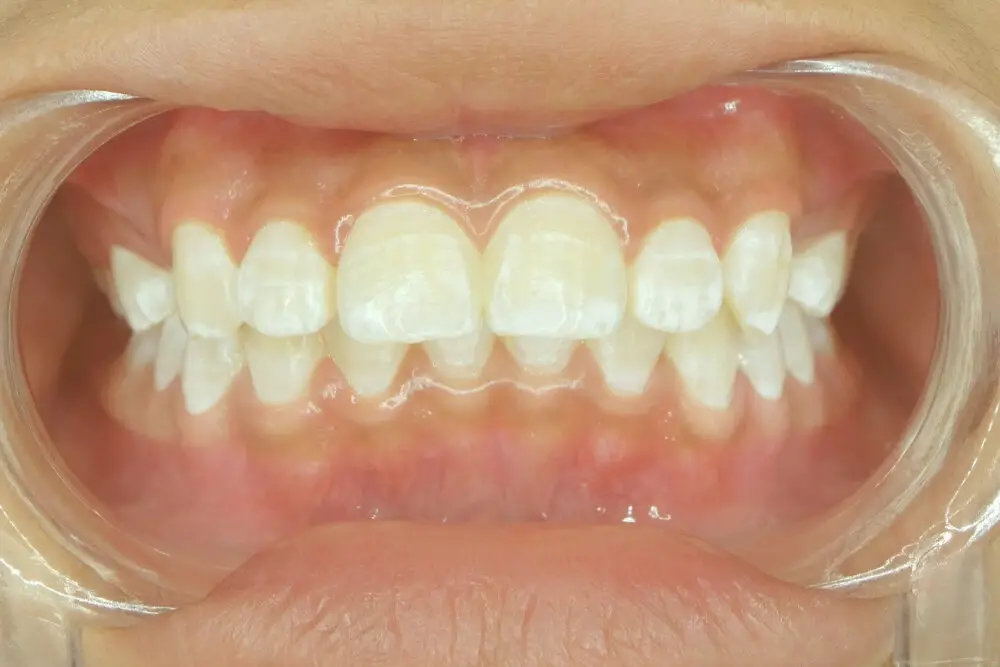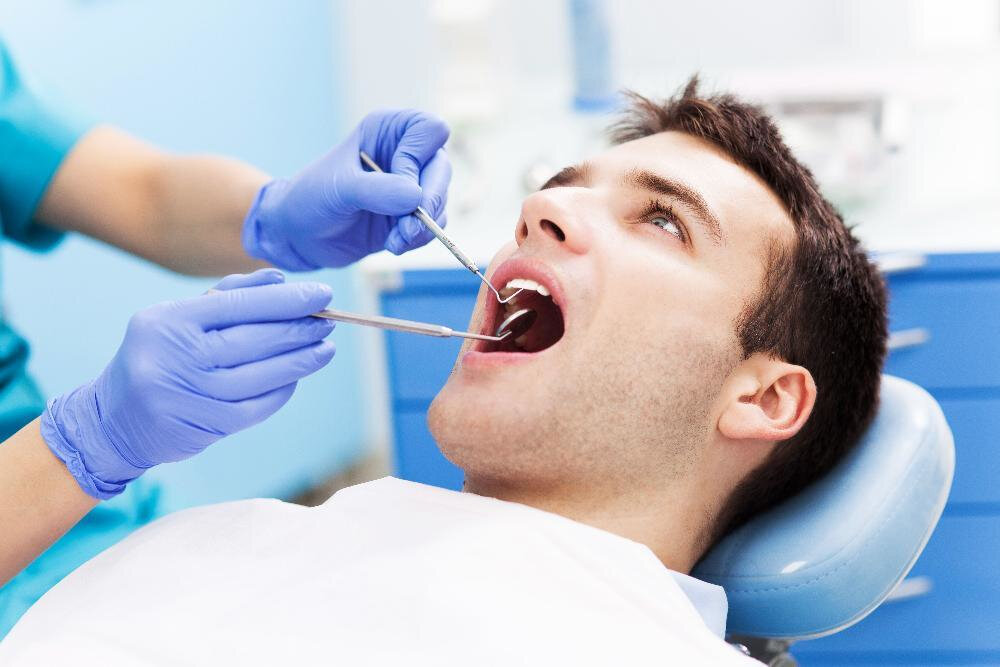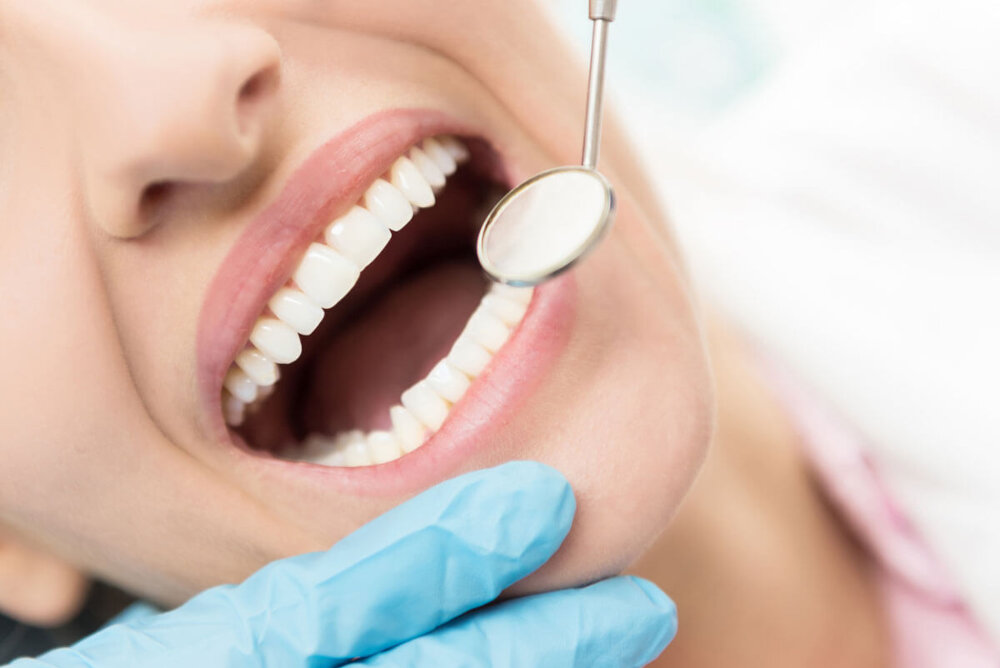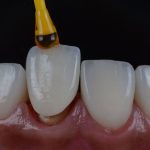Uncovering the Truth: High Risk or Low Chance? Understanding Permanent Nerve Damage from Wisdom Teeth Extraction

Wisdom teeth extraction is a common dental procedure that millions of people undergo every year. While the vast majority of patients experience only minor discomfort and a speedy recovery, there are rare cases where permanent nerve damage can occur. This type of injury can cause a range of symptoms, from tingling and numbness to severe pain and loss of sensation, and in some cases may require surgical intervention to correct. Understanding the risks and likelihood of permanent nerve damage from wisdom teeth extraction is an essential part of informed decision-making when it comes to oral health procedures. Despite the fact that nerve damage from wisdom teeth extraction is relatively rare, it is an issue that has garnered significant attention in recent years. Many patients are understandably concerned about the possibility of permanent injury, and may be hesitant to undergo the procedure as a result. In this article, we will explore the causes and risk factors associated with nerve damage from wisdom teeth extraction, as well as the symptoms and treatment options available for those who experience this type of injury. By providing a comprehensive overview of this important issue, we hope to empower patients with the knowledge they need to make informed decisions about their oral health.
Wisdom teeth extraction is a surgical procedure that involves the removal of one or more wisdom teeth, which are the third molars located at the back of the mouth. These teeth often cause problems due to their size and position, which can lead to pain, infection, and damage to adjacent teeth. The extraction process involves the use of local anesthesia and, in some cases, sedation to ensure the patient’s comfort during the procedure. Although wisdom teeth extraction is a common and generally safe procedure, there is a risk of nerve damage that can result in numbness or tingling in the lower lip, tongue, or chin. It is important for patients to understand these risks and discuss them with their dentist or oral surgeon before undergoing the procedure.
The procedure of wisdom teeth extraction, although common, comes with potential risks and complications. One of the most significant complications is permanent nerve damage, which can lead to loss of sensation, tingling, or even paralysis in the affected area. Other risks include bleeding, infection, swelling, and damage to adjacent teeth or structures. Factors such as the position of the tooth, the patient’s age, and general health, as well as the experience and skill of the dentist or oral surgeon, can influence the likelihood of complications. Therefore, it is essential to discuss and understand the potential risks and benefits of the procedure with your dentist or oral surgeon before undergoing wisdom teeth extraction.
What is Permanent Nerve Damage?

Permanent nerve damage refers to a condition where the nerves in the body are damaged beyond repair, leading to long-lasting and often irreversible effects. This can occur due to a variety of reasons, including injury, disease, or surgery, such as wisdom tooth extraction. Nerves are responsible for transmitting signals between the brain and the rest of the body, so any damage to them can result in a range of symptoms, including pain, numbness, tingling, and weakness. In the case of wisdom tooth extraction, permanent nerve damage can occur when the nerves that supply sensation to the lips, tongue, and cheeks are damaged during the procedure. This can lead to a loss of feeling or altered sensation in these areas, which can have a significant impact on a person’s quality of life. While permanent nerve damage is a rare complication of wisdom tooth extraction, it is important to understand the risk involved and take steps to minimize it. Factors that can increase the risk of nerve damage include the position of the tooth, the skill and experience of the dentist, and the anatomy of the patient. Patients should discuss their concerns with their dentist and ask about their experience and success rate with the procedure. They should also be aware of the signs of nerve damage, such as persistent numbness or tingling, and report them promptly to their dentist. With proper care and attention, the risk of permanent nerve damage can be minimized, allowing patients to undergo wisdom tooth extraction with confidence.
Permanent nerve damage refers to a condition that occurs when there is a lasting impairment or injury to a person’s nerves, leading to persistent or permanent changes in the way their nervous system functions. In the case of wisdom teeth extraction, permanent nerve damage can occur when the nerves that are responsible for sensation and movement in the tongue, lips, and jaw are damaged during the procedure. This can result in a range of symptoms, including numbness, tingling, pain, and difficulty speaking or eating. While the risk of permanent nerve damage from wisdom teeth extraction is relatively low, it is important for patients to understand the potential risks and to work closely with their dentist or oral surgeon to minimize the chances of complications.
Permanent nerve damage during wisdom teeth extraction can occur due to various reasons. One of the main causes is the proximity of the wisdom teeth to the nerves that run through the jawbone. If the wisdom teeth are deeply embedded, the surgeon may need to remove some of the surrounding bone to extract them, which in turn can damage the nerves. Additionally, the use of excessive force during the extraction process can also cause nerve damage. In some cases, the damage may be caused by the anesthesia used during the procedure. While permanent nerve damage is a rare occurrence, patients who have a higher risk of nerve damage may be advised to seek alternative treatment options or to have their wisdom teeth monitored instead of extracted.
Signs and Symptoms of Permanent Nerve Damage

Permanent nerve damage is a serious complication that can occur after wisdom teeth extraction. It is essential to understand the signs and symptoms of permanent nerve damage to seek prompt medical attention. These symptoms can range from mild to severe, and they can vary depending on the affected nerve and its location. Some of the common signs of permanent nerve damage include numbness or tingling sensations in the tongue, lips, cheeks, or chin. Patients may also experience pain, burning, or shooting pain in the affected area. In severe cases, patients may have difficulty speaking, eating, or drinking, which can significantly impact their quality of life. Other signs of permanent nerve damage include muscle weakness, loss of sensation, or paralysis in the affected area. Patients may also experience a loss of taste or altered taste sensation, making it difficult to enjoy food or drinks. In rare cases, permanent nerve damage can lead to chronic pain, depression, anxiety, or other psychological issues. Patients should seek immediate medical attention if they experience any of these symptoms after wisdom teeth extraction. Early diagnosis and treatment can help prevent permanent nerve damage and improve the patient’s outcome.
Permanent nerve damage resulting from wisdom teeth extraction can be debilitating and life-altering. Some common signs and symptoms of this type of nerve damage include numbness or tingling in the lips, tongue, and cheeks, difficulty speaking, eating, or drinking, loss of sensation in the affected areas, and chronic pain or discomfort. Patients may also experience muscle weakness, twitching, or paralysis in severe cases. It’s essential to seek medical attention immediately if any of these symptoms occur to avoid further damage and improve the chances of successful treatment. Understanding the risks and potential complications associated with wisdom teeth extraction can help patients make informed decisions and prevent long-term consequences.
Identifying permanent nerve damage after wisdom teeth extraction can be challenging and requires careful observation of symptoms. Patients who experience numbness or tingling sensations in their lips, tongue, or cheeks should seek immediate medical attention. Additionally, patients who have difficulty speaking, chewing, or swallowing should also be evaluated for permanent nerve damage. Diagnostic tests such as electromyography (EMG) and nerve conduction studies (NCS) can help identify the extent of nerve damage and determine the appropriate course of treatment. It is important for patients to communicate any concerns they have with their dental professional to ensure prompt and effective treatment.
Preventing Permanent Nerve Damage

Permanent nerve damage is a rare but serious complication that can occur during wisdom teeth extraction. The removal of wisdom teeth can be a daunting experience, and it is important to take all necessary precautions to avoid any permanent damage to the nerves. There are a few things that can be done to prevent permanent nerve damage, such as selecting a skilled and experienced oral surgeon, discussing the risks and benefits of the procedure with the surgeon, and taking proper care before and after the surgery. One of the most important steps in preventing permanent nerve damage is selecting a skilled and experienced oral surgeon. It is essential to choose a surgeon who has a track record of successful wisdom teeth extractions with minimal complications. A skilled surgeon will be able to properly assess the risks associated with the surgery and will have the expertise to perform the procedure with precision and care. Additionally, discussing the risks and benefits of the procedure with the surgeon will help you understand the potential complications and how to avoid them. Finally, taking proper care before and after the surgery, such as avoiding smoking and following post-operative instructions, can help minimize the risk of permanent nerve damage.
Wisdom teeth extraction is a routine procedure that can, in rare cases, lead to permanent nerve damage. To prevent this, steps should be taken before, during, and after the procedure. A thorough examination of the patient’s mouth and jaw should be conducted prior to the extraction to identify any potential risks. During the procedure, the dentist should take care not to apply excessive force or pressure on the nerve or surrounding tissues. Post-operative care is also crucial, and patients should be instructed to avoid smoking, using straws, or engaging in any activities that could disrupt the healing process. Any symptoms of nerve damage should be reported immediately to the dentist to ensure prompt treatment and prevent permanent damage. By following these steps, the risk of permanent nerve damage during wisdom teeth extraction can be significantly reduced.
Choosing a qualified and experienced oral surgeon is crucial when it comes to wisdom teeth extraction. The procedure involves the extraction of teeth located near the nerves, which increases the risk of permanent nerve damage if not performed correctly. An oral surgeon with proper qualifications and experience can help minimize this risk by using appropriate techniques and tools and identifying any potential complications before the procedure. They can also provide a thorough consultation and explain the potential risks and benefits of the procedure. Patients can ensure that their oral surgeon is qualified and experienced by checking their credentials and asking for referrals or reviews from previous patients. Ultimately, trusting the right oral surgeon can lead to a safer and more successful wisdom teeth extraction procedure.
Treatment for Permanent Nerve Damage

Permanent nerve damage resulting from wisdom teeth extraction can be a debilitating condition that affects a patient’s quality of life. Treatment options for permanent nerve damage depend on the severity of the condition and the specific nerve affected. In mild cases, over-the-counter pain medication may be sufficient to manage the pain. However, in more severe cases, prescription medication may be necessary to alleviate the pain and discomfort caused by the nerve damage. In addition to medication, physical therapy may be recommended to improve range of motion and strengthen the affected muscles. Surgery may be considered in cases where the nerve damage is severe and is causing significant impairment. However, surgery can be risky and may not be successful in all cases, so it is important to carefully consider the potential risks and benefits before undergoing any surgical procedure. Another treatment option for permanent nerve damage is regenerative medicine, which involves the use of stem cells or growth factors to promote nerve regeneration. This approach is still in the early stages of development and further research is needed to determine its efficacy and safety. However, early studies have shown promising results, and many experts believe that regenerative medicine could be a game-changer in the treatment of permanent nerve damage. Other alternative therapies, such as acupuncture and chiropractic care, may also be helpful in managing symptoms and improving overall well-being. Ultimately, the best treatment plan for permanent nerve damage will depend on the individual patient’s needs and the severity of their condition. It is important to work closely with a healthcare provider to develop a comprehensive treatment plan that addresses all aspects of the patient’s condition and helps them achieve the best possible outcome.
Permanent nerve damage from wisdom teeth extraction can be a devastating and life-changing experience. However, there are several options available for treating and managing the condition. Some patients may benefit from medications such as anticonvulsants or antidepressants, which can help to alleviate nerve pain and improve overall quality of life. Others may opt for surgical interventions such as nerve grafting or microsurgical repair, which can restore function to damaged nerves. In cases where nerve damage is severe or irreversible, patients may also benefit from psychological counseling or support groups to help them cope with the emotional impact of their condition. Ultimately, the best course of treatment will depend on the individual patient’s needs and the severity of their nerve damage.
The success rates of treatment options for permanent nerve damage from wisdom teeth extraction vary depending on the severity of the injury and the chosen approach. The most conservative treatment option is observation, where the patient and dentist monitor the nerve function over time. This approach has shown a success rate of up to 75% in mild cases. However, in moderate to severe cases, surgical intervention may be necessary. Nerve decompression and nerve grafting have shown success rates ranging from 50% to 90%, depending on the timing of the procedure and the extent of the injury. It is important to note that success rates may also depend on the skill and experience of the treating dentist or surgeon. Therefore, patients should carefully consider their options and choose a qualified and experienced professional to perform their treatment.
The article \Uncovering the Truth High Risk or Low Chance Understanding Permanent Nerve Damage from Wisdom Teeth Extraction\ delves into the risks associated with wisdom teeth extraction surgery. It highlights that while permanent nerve damage is a rare complication, it can occur due to the proximity of the nerves to the wisdom teeth. The article emphasizes the importance of informed consent, where patients should be aware of the potential risks before undergoing the procedure. Additionally, it suggests that choosing a skilled and experienced oral surgeon can reduce the risk of nerve damage. Finally, the article advises patients to be proactive in seeking treatment if they experience any persistent numbness or pain after the surgery.
When it comes to wisdom teeth extraction, it is important to understand the potential risks and complications that may arise from the procedure. While many people undergo this surgery without any problems, there is a small chance of permanent nerve damage. This can result in a loss of sensation or movement in the tongue, lips, or cheeks, which can have a significant impact on a person’s quality of life. Understanding these risks and consulting with a qualified oral surgeon can help patients make informed decisions about their treatment options and minimize the potential for complications. It is important to weigh the benefits of wisdom teeth extraction against the potential risks and consider alternative options if necessary.
When it comes to wisdom teeth extraction, it’s important to consider the potential risks and complications that may arise. While permanent nerve damage is a relatively low chance occurrence, it’s not impossible. That’s why it’s crucial to consult with a qualified oral surgeon before undergoing the procedure. A professional oral surgeon will thoroughly examine your oral health and take into account any pre-existing conditions that may increase your risk of complications. They will also be able to provide you with information on the potential risks and benefits of the procedure, and help you make an informed decision about whether or not to move forward with the extraction. Ultimately, taking the time to consult with a qualified oral surgeon can provide you with peace of mind and ensure that you receive the best possible care.
Conclusion

In conclusion, understanding the risks associated with wisdom teeth extraction is crucial in making informed decisions about the procedure. While permanent nerve damage is a rare complication, it is a possibility that should not be taken lightly. Patients should discuss the potential risks with their dentist or oral surgeon and consider alternative treatment options if deemed necessary. It is important to prioritize one’s oral health but not at the expense of long-term nerve damage. Ultimately, the decision to undergo wisdom teeth extraction should be based on a careful assessment of the individual’s unique situation and the potential risks involved.








